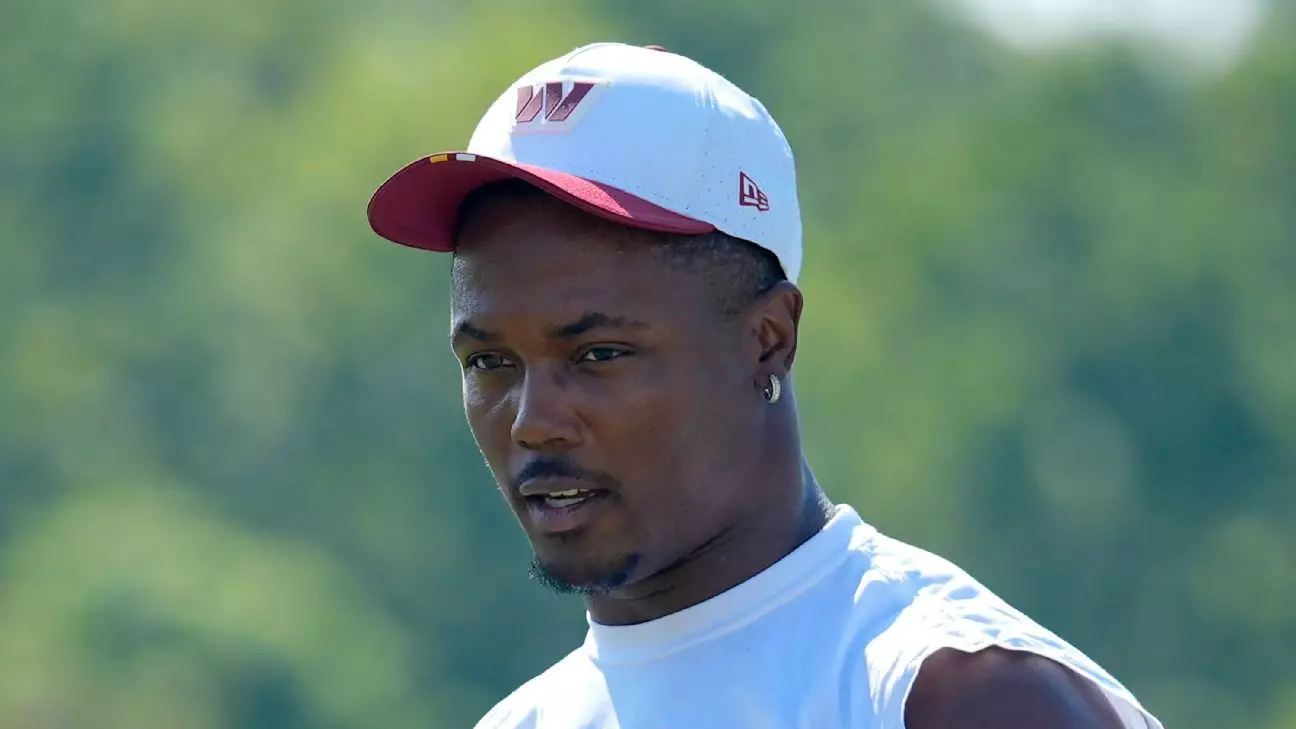In the heart of American football, a sport celebrated for its physicality and emotional intensity, lies a complex web of negotiations that often overshadow the game itself. The recent saga involving Washington Commanders receiver Terry McLaurin exemplifies this tension, exposing the uncomfortable reality of how athlete loyalty is increasingly subjected to the ruthless machinery of corporate interests. McLaurin’s activation from the physically unable to perform list, complicated contract disputes, and public frustrations highlight a systemic imbalance that questions the integrity of the sport’s human element. The fact that a dedicated player like McLaurin, who has consistently delivered on-field performance, is caught in a standoff over a relatively modest financial upgrade reveals the prioritization of dollar signs over human dedication.
While NFL teams operate within a business framework, the transactional nature of these negotiations can erode fundamental notions of respect and fairness. Players like McLaurin, who have established themselves as key contributors, find themselves at the mercy of organizational strategies that seem more aligned with profit margins than athlete well-being. His desire for a fair valuation—comparing his potential deal to peers like DK Metcalf—underscores a fundamental need for acknowledgment in a system that often undervalues loyalty and sacrifice. Instead of being seen as essential beyond their statistical output, players are frequently reduced to bargaining chips, their worth diminished by market comparisons and ownership agendas.
The Illusion of Player Control and the Power of Negotiations
The reality that McLaurin publicly requested a trade, despite having no plans for such a move according to team sources, exposes the illusion of player agency amidst organizational power plays. His decision to sit out practices and watch from the sidelines, while being technically present, is a form of silent protest—a passive resistance against what he perceives as undervaluation. Yet, even this stance reflects the limited leverage players genuinely have within the league’s ecosystem. The threats of forfeiting game checks or risking injuries without guaranteed protection underscore a disturbingly unequal power dynamic. It’s a system where athletes risking their bodies for a team can be coerced into subservience or forced into silence when their worth is questioned.
More troubling is the public narrative that attempts to frame McLaurin’s frustrations as unprofessional, ignoring the systemic issues propelling his dissatisfaction. His openness about feeling unappreciated and the emotional toll of stalled negotiations reveal a layer of humanity often ciphered out in favor of team branding and market value. The league’s tendency to commodify players, rather than celebrate their dedication, diminishes the social importance of providing athletes with fair treatment. A sport that is so heavily rooted in community and shared passion must confront its own hypocrisy—claiming to champion excellence while sidelining the very individuals who embody that excellence every Sunday.
The Broader Implication: Is the Game Sacrificing Humanity for Commerce?
Beneath the surface, McLaurin’s situation underscores a broader societal critique—are professional sports truly about the sport, or has commercialism overshadowed its core values? The NFL, with its immense revenues, lucrative broadcasting rights, and merchandising empire, often appears more directed toward maximizing profits than fostering equitable environments for its athletes. The silent suffering of players like McLaurin exemplifies how these giants of industry often turn a blind eye to personal hardship in pursuit of financial growth. Contract disputes, injuries, and player frustrations become mere headline snippets rather than catalysts for meaningful change.
The troubling aspect is how much influence ownership wields over the careers and lives of their players, who are often seen as assets rather than individuals. In a more balanced system, negotiations would prioritize fairness, stability, and respect for the athlete’s contribution—values that can foster genuine loyalty and long-term growth of the game. Instead, the current model perpetuates a cycle of exploitation, where players are pushed to their physical and emotional limits, then cast aside if their market value declines.
Ultimately, McLaurin’s plight shines a spotlight on the ethical dilemma at the heart of modern professional football. The sport’s future should not rest solely on the altar of financial gain but must recognize that behind every stat sheet and highlight reel footage is a person driven by passion, dedication, and a desire for respect. Only then can the league reconcile its commercial ambitions with the fundamental human dignity that the sport, at its best, claims to uphold.


Leave a Reply